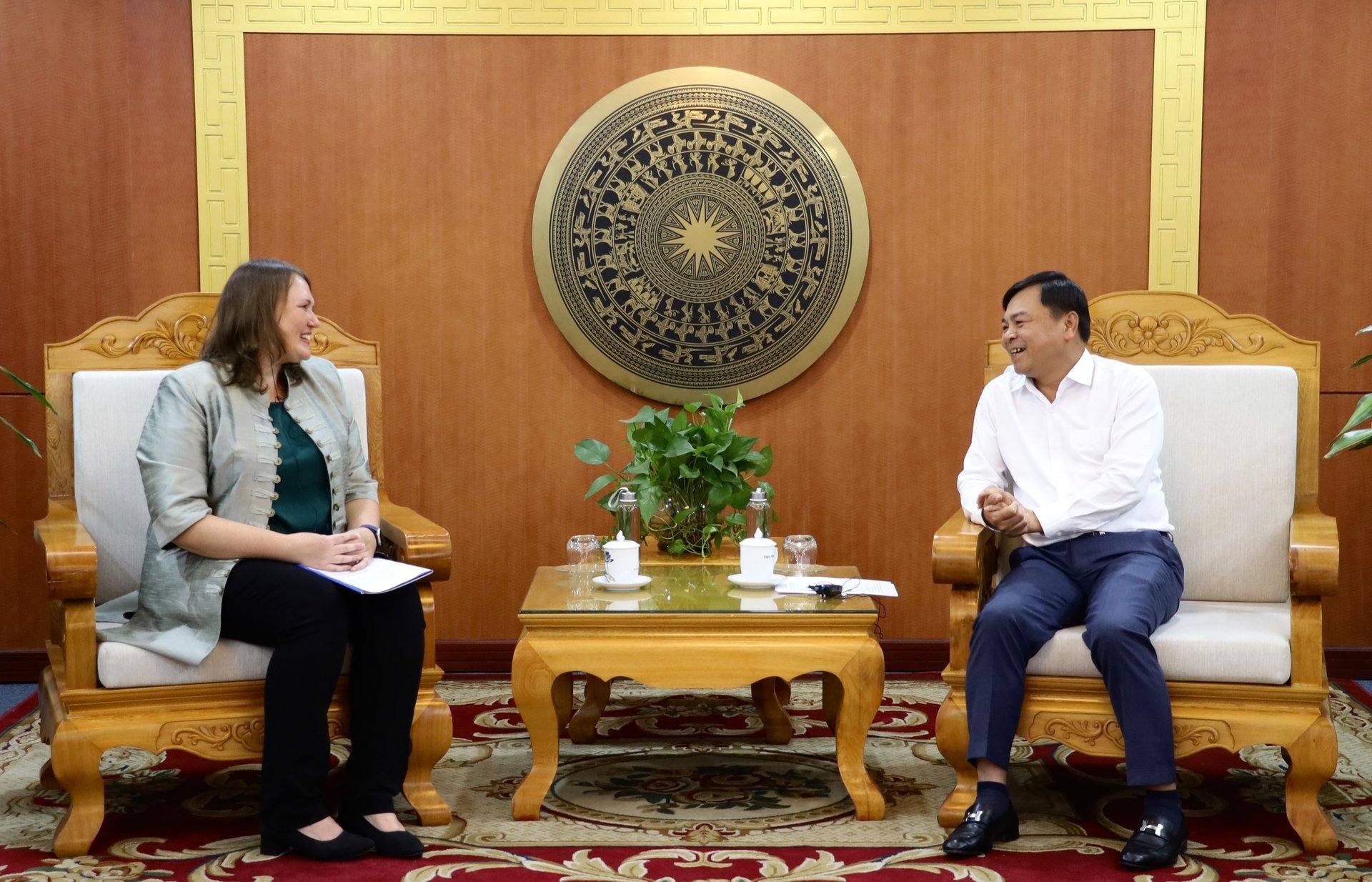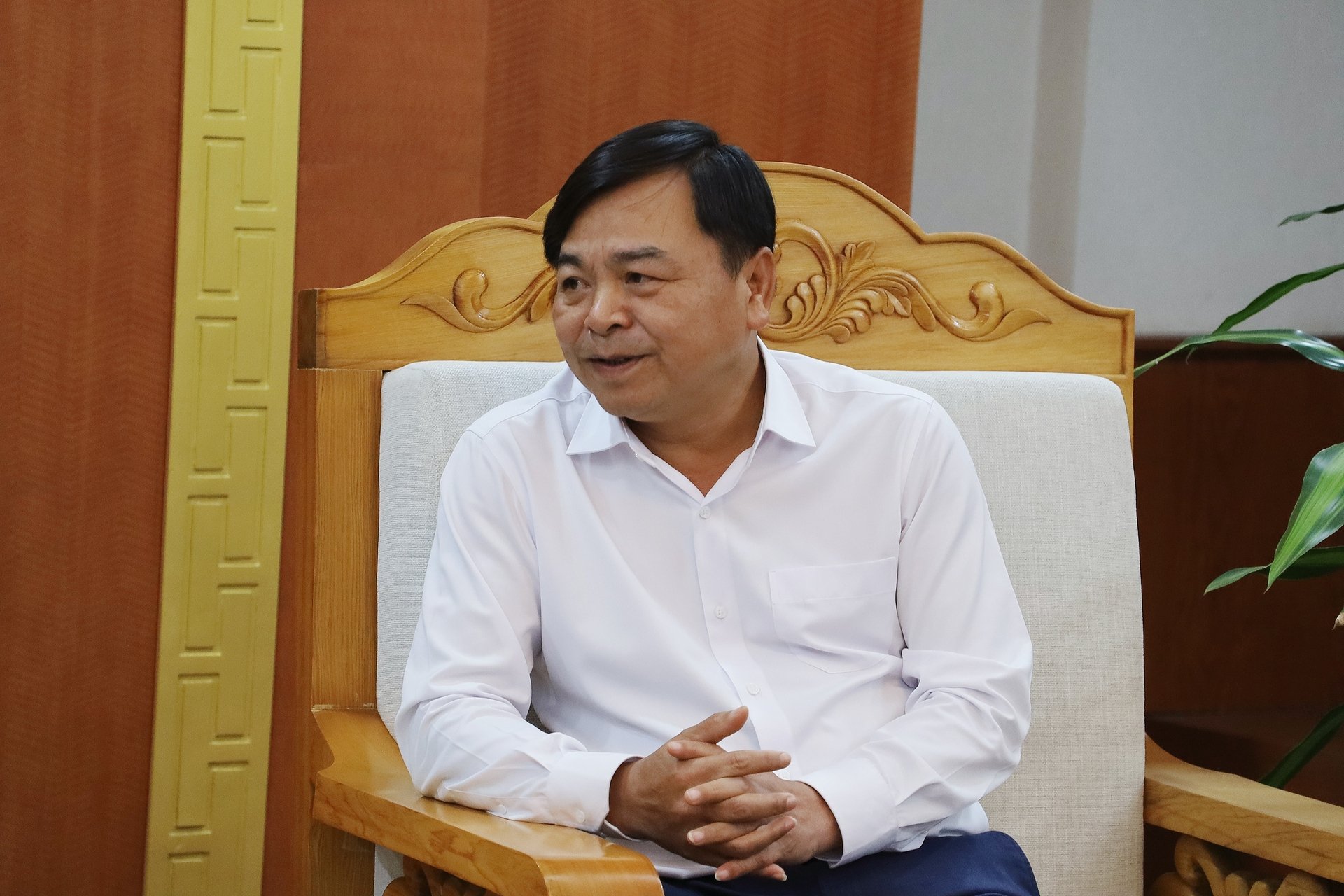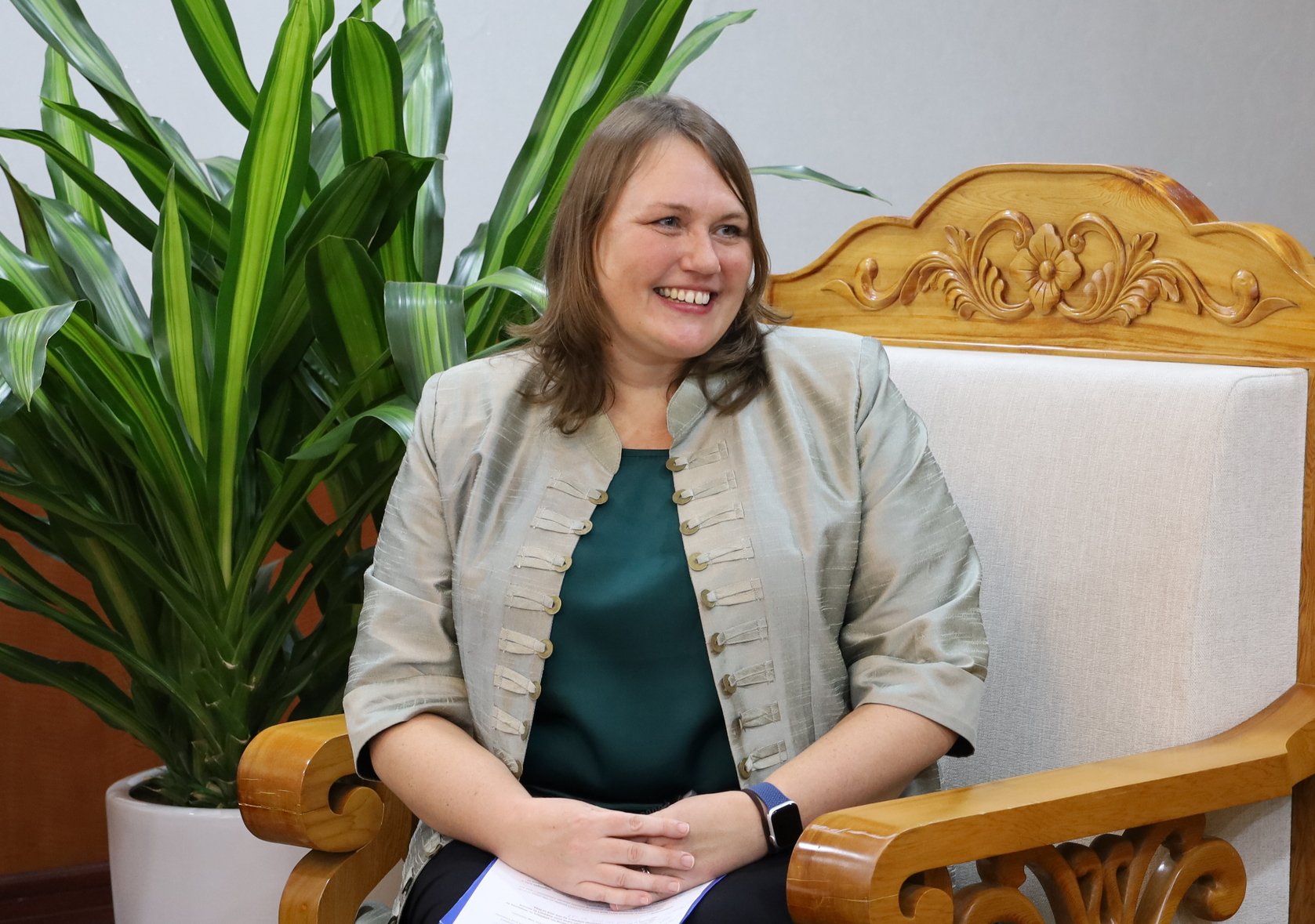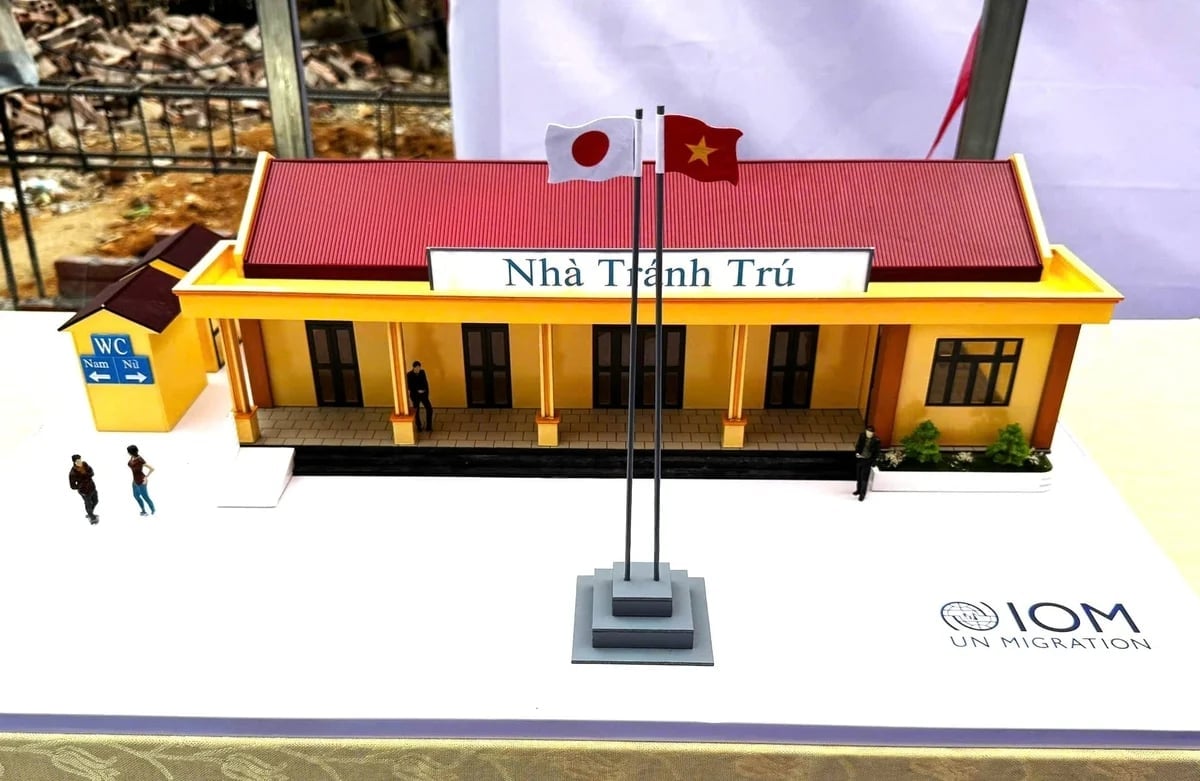May 24, 2025 | 16:19 GMT +7
May 24, 2025 | 16:19 GMT +7
Hotline: 0913.378.918
May 24, 2025 | 16:19 GMT +7
Hotline: 0913.378.918

On the afternoon of April 14, Deputy Minister of Agriculture and Environment Nguyen Hoang Hiep hosted a meeting with Ms. Kendra Rinas, Chief of Mission of IOM in Vietnam. Photo: Phuong Linh.
According to Deputy Minister Nguyen Hoang Hiep, Vietnam is currently facing a range of complex challenges related to migration, especially in the northern mountainous regions, the Central Highlands, and the Mekong Delta. Among the most pressing issues is the spontaneous migration of nearly 200,000 households in the Central Highlands. This unplanned movement has resulted in numerous socio-economic and environmental consequences.
At the same time, climate change and increasingly severe natural disasters have caused substantial human and material losses, seriously hindering the country’s progress toward sustainable development. The impact is particularly acute in remote and isolated areas, as well as in communities with high proportions of ethnic minorities.
In response, the Vietnamese Government has been actively implementing a wide range of strategies, action plans, and targeted projects aimed at strengthening the country’s capacity to respond to natural disasters and adapt to climate change.
A key priority in this approach is the development of sustainable, community-based disaster prevention infrastructure. This includes a strong focus on supporting the most at-risk populations, such as women, children, the elderly, and people with disabilities. One specific and important initiative is the construction and upgrading of storm-resilient shelters. These shelters are being designed to meet safety standards and provide essential facilities, such as access to clean water, sanitation, and safe resting areas.

Mr. Nguyen Hoang Hiep, Deputy Minister of Agriculture and Environment, expressed his hope that IOM will support and cooperate with Vietnam in developing safe and standardized shelter models. Photo: Phuong Linh.
Deputy Minister Nguyen Hoang Hiep emphasized that migration is not merely about people moving away from their homes, but rather a process of resettlement that helps communities live in more concentrated, safer areas, minimizes disaster risks, and improves livelihoods. “For example, in the Mekong Delta, reorganizing residential areas along rivers can help prevent landslides and enable better adaptation to climate change", Mr. Hiep illustrated.
He also expressed his hope that the International Organization for Migration would support and collaborate with Vietnam in renovating and upgrading existing public facilities into safe, multifunctional storm shelters. “I propose piloting a few models, such as upgrading infrastructure and equipment in schools, so they can serve both as educational institutions and safe shelters during natural disasters", he suggested.
According to Mr. Hiep, if these pilot models prove successful, the government is prepared to allocate budget funds to scale them up nationwide. “This approach is not only practical and efficient by making use of existing infrastructure, but it also makes it easier to gain the interest and support of donors", he added.

Ms. Kendra Rinas, Chief of Mission of the International Organization for Migration in Vietnam, affirmed the potential for cooperation and development between IOM and Vietnam during the meeting on April 14. Photo: Phuong Linh.
Listening to the remarks of Deputy Minister Nguyen Hoang Hiep, Ms. Kendra Rinas, Chief of Mission of IOM in Vietnam, stated that IOM will continue to collaborate on improving storm shelter standards, with plans to add three new shelters in Vietnam before June 2025.
Additionally, Ms. Rinas emphasized the potential for technical cooperation with Vietnam, particularly in areas such as data research, knowledge sharing, and the design of migration policies that adapt to climate change.
"IOM has the capability to mobilize resources effectively through our extensive network of partners, from China and Japan to Europe. We hope to further formalize collaborations to help Vietnam mitigate the impacts of climate change and better support its people", said Ms. Kendra Rinas.

The community shelter model in Choi village, Dinh Phung commune, Bao Lac district, Cao Bang province. Photo: Department of Construction Management.
The International Organization for Migration and the Ministry of Agriculture and Environment officially launched the construction of a community storm shelter in Choi Village, Dinh Phung Commune, Bao Lac District, Cao Bang Province, on April 9. This project is expected to be completed by May 2025, providing a safe shelter for 150 people.
The community shelter is part of an emergency international aid initiative aimed at addressing the aftermath of natural disasters in several northern provinces severely affected by Typhoon Yagi and subsequent flooding. This project is being implemented by IOM in collaboration with the Ministry of Agriculture and Environment, with funding from the Government of Japan.
Earlier, with financial support from the Government of Japan, IOM distributed 1,100 relief packages (valued at approximately 65.800 USD) to nearly 5,000 people in eight communes of Cao Bang Province to help recover from the damage caused by Typhoon Yagi.
Translated by Phuong Linh

(VAN) In the tranquil wetlands of Van Long, there are quiet souls who guard the forests, nurture the waters, and oversee every bird and troop of langurs as protecting the essence of a living heritage.

(VAN) WWF, GIZ, IUCN, UNDP call for biodiversity conservation and sustainable development must be regarded as a unity in strategies for a green future.

(VAN) On celebration of International Day for Biological Diversity, Deputy Minister Nguyen Quoc Tri called for practical actions to address nature and biodiversity conservation.

(VAN) Dr. Hoang Thi Thanh Nhan – Deputy Director of the Nature and Biodiversity Conservation Agency – highlighted this on the International Day for Biological Diversity, May 22, 2025.
![Ho Chi Minh city adapts to climate change: [2] Accelerating action](https://t.ex-cdn.com/nongnghiepmoitruong.vn/608w/files/chiqk/2025/05/22/4024-4220-bien-doi-khi-hau-1-100626_766.jpg)
(VAN) Clearly recognizing the challenges posed by climate change, Ho Chi Minh city has swiftly shaped its policies and implemented practical solutions to adapt.

(VAN) Rice straw is no longer just a discarded byproduct, but it is becoming a green resource that helps farmers in the Mekong Delta reduce emissions and promote circular, sustainable agriculture.

(VAN) Other Effective Area-based Conservation Measures (OECMs) are solutions that contribute effectively to achieving the goals of the Kunming–Montreal Global Biodiversity Framework.